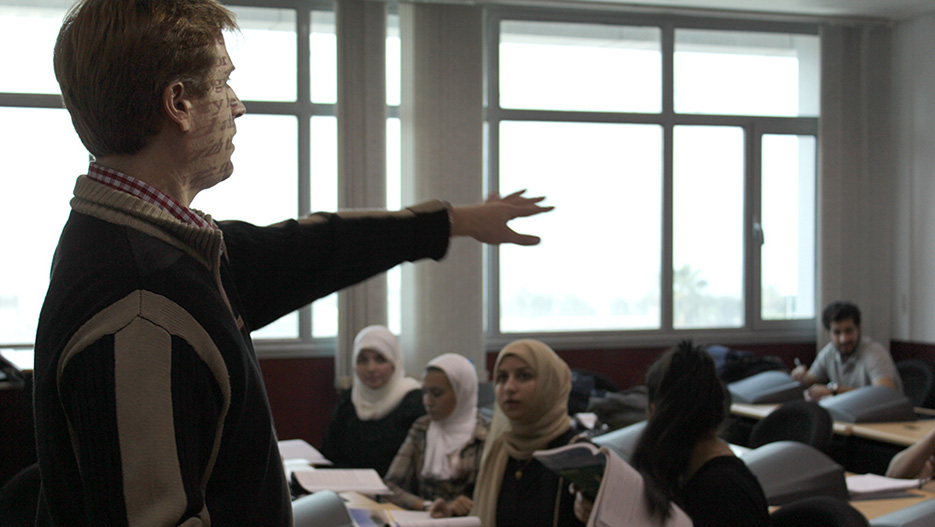Kuwait Higher Education Overview 2017: Making Kuwaiti Education World-Class
The Kuwaiti government’s education budget had grown relentlessly in recent years, allocating almost 10% of its annual budget to Kuwait’s education sector in 2016, as the leadership has continued to emphasise the importance of education in creating sustainable employment for their citizens and equipping them with the skills to compete in the global marketplace.

Kuwait, March 2017
The Kuwaiti government’s education budget had grown relentlessly in recent years, allocating almost 10% of its annual budget to Kuwait’s education sector in 2016, as the leadership has continued to emphasise the importance of education in creating sustainable employment for their citizens and equipping them with the skills to compete in the global marketplace.
Indeed, government expenditure on education has been growing year-on-year by some 14.5% up to the most recent fiscal year. With the persistent oil price lows experienced in recent years bringing the need for economic diversification starkly back into relief, and reinvigorating efforts to develop knowledge-intensive sectors such as high-tech manufacturing and ICT.
Necessarily, the new long-term development plan, “Kuwait Vision 2035”, places a strong emphasis on education as a catalyst to economic diversification, sustainable growth, and social progress, and in a historic departure, this substantial investment from the government is now being coupled with sweeping reform tailored to meet Kuwait’s long-term needs.
As Dr. Sullivan of AUK envisaged, “We are aiming to produce those leaders, managers, directors, creators, and innovators, not just cogs in somebody else’s wheel.”
Kuwait’s private education system is currently occupying a strong presence; educating more than 40% of students and expanding more rapidly than the public education system—with Kuwait demographics and growth driving this demand.
As Dr. Earl (Tim) Sullivan, President of the American University of Kuwait (AUK), explained, “For many years, higher education here was dominated by Kuwait University, which is a large public institution. Only a few years ago, it was decided to add options for private universities that would offer different kinds of programs. Thus, private universities have become an option.”

With literacy rates of 96.2% according to UNICEF, comparable to most developed countries, most Kuwaiti students leave schools with solid skills, and there are a range of factors that should continue to drive robust growth in education spending in the coming years. Firstly, in terms of raw demographics that are growing rapidly from a present just shy of 4 million and projected to reach 5.1 million by 2030.
Secondly, with the government’s commitment to education both as a social good and as a prerequisite for Kuwait’s economic diversification strategy. Even with government revenues less flush with oil income, developing Kuwaitis’ knowledge and skills remains a top priority. Whilst on-going reform should also see a greater use of technology in education creating opportunities for IT suppliers.
Thirdly, because Kuwait is one of the world’s most affluent societies, with a GDP per capita income of over $70,000 a year.
Increasingly aware of the importance of education in an increasingly competitive international marketplace, Kuwaitis and expatriates alike appear more willing and able to invest in their children’s education at all levels.
With an education sector overseen by the Ministry of Education (MOE) which works in conjunction with the National Centre for Educational Development (NCED) Kuwait’s tertiary education sector is expanding strongly due booth to the aforementioned population growth but also on-going government investments in its capacity, incentives for private universities to establish facilities and expand, and the policy encouraging more Kuwaiti’s to take higher education and training to develop their skills.
Whilst the private sector in the higher education segment has independence, the courses that tertiary institutions provide are still shaped by the government’s labour market priorities, as Abdullah Al Sharhan, Chairman of Australian College of Kuwait (ACK), clarified, “The first thing is to produce as many professional engineers and businessmen as we can. The market is hungry for them. Currently, Kuwait is dependent on non-Kuwaitis but we want Kuwaitis to slowly take over the professional work that sustains the country.”
Kuwait’s drive for economic diversification and the development of a knowledge-intensive service sector to provide jobs for its young population makes education a priority. The public education system provides the basics, but the goal now is to make education world-class with international institutions supporting reform and the private sector with a central role to play in realising this. Whilst the profusion of private universities and ever more vocational education institutions that have proliferated should also give Kuwaiti tertiary education the capacity to expand and meet the rising demand. As Dr. Tim Sullivan of AUK envisaged, “We are aiming to produce those leaders, managers, directors, creators, and innovators, not just cogs in somebody else’s wheel.”
FAIR USE POLICY
This material (including media content) may not be published, broadcasted, rewritten, or redistributed. However, linking directly to the page (including the source, i.e. Marcopolis.net) is permitted and encouraged.